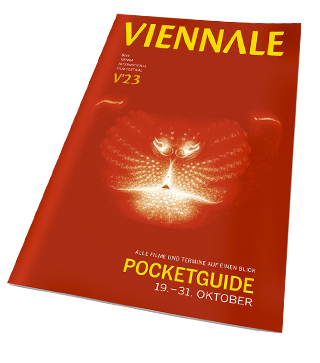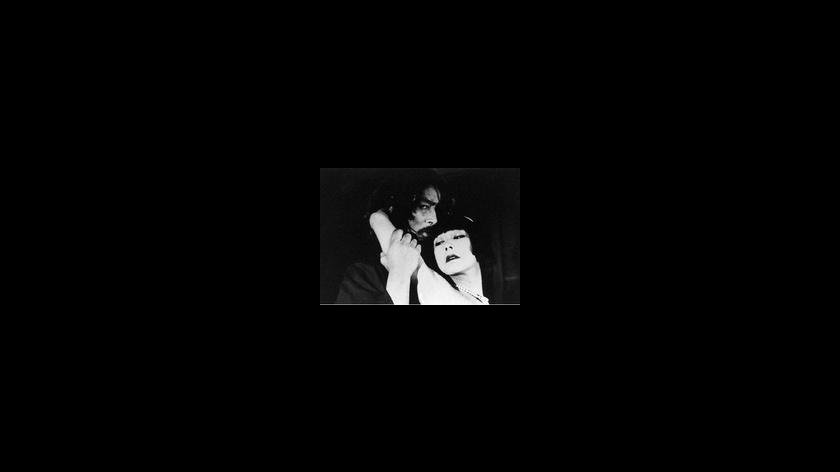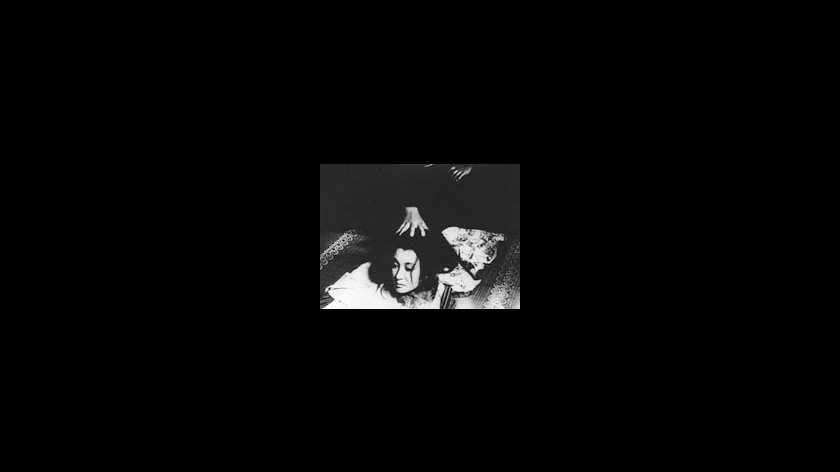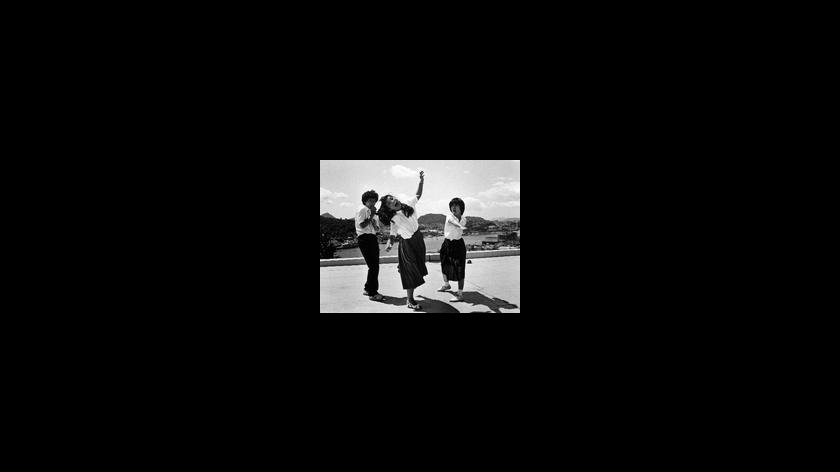TENSHI NO KôKOTSU
Ekstase Der Engel
<i>Hirasawa Gô:</i> When did you write <i>Tenshi no kôkotsu?
Adachi Masao:</i> After the Asaka incident1 the black helmet faction struggle started. While following it and the fight in Sanrizuka2 I was thinking about the problem of guerilla warfare on a different level. I thought: What would happen if one of the guys lost his eyesight after throwing a bomb, and where could Kusa Kajirô3 be hiding? I wrote three drafts. In one I let Kim Hirou4 appear, in another I envisioned a world, in which Kusa Kajirô was in fact an angel.
<i>Hirasawa:</i> This was <i>Tenshi wa kechi de aru</i> (Stingy Angel), right?
<i>Adachi:</i> Yes. Afterwards I changed the story for ATG and reworked it, but then I turned it over to Komizu Kazuo and Akiyama Michio. I thought: Why not let the youngsters write the scripts But that never happened.
There was a meeting scheduled with the ATG planning committee, where the projects were explained to the members of the committee. Wakamatsu was bad at explaining things, which he hated, so I attended the meeting and presented the project. The committee encouraged me to write a script: the project was approved. Now the scenario could freely develop and I gladly started writing. Wakamatsu displayed his terrific sense when he asked me to completely rewrite the script after the Christmas-Tree Bombing. I made sure that he really meant what he was saying, and returned to the original idea of a left-wing version of the Kusa Kajirô story.
<i>Hirasawa:</i> When did you conceive this idea?
<i>Adachi: </i>I first thought about it before I started to work on <i>Ryakushô renzoku shasatsuma </i>(A.K.A. Serial Killer, 1969). I was not sure then whether Wakamatsu should make the film or whether I should do it myself. When we finished <i>Yuke, yuke nidome no shojo</i> (Go, Go, Second Time Virgin) I thought I might write the script after our next film <i>Seizoku</i> (Sex Jack). I had an offer to
direct a film for ATG, but I proposed Wakamatsu, for I thought he should come first. We organized special programs of his films at the Sasori-za in order to change his status and to enhance his appeal for ATG. The screenings were always crowded and we made sure that Tôhô got a picture of the programs success. Kuzui Kinshirô very actively championed Wakamatsu. He didnt only emphasize Wakamatsus image as «master of <i>pink eiga»,</i> but evaluated the originality of his films within the market.
<i>Hirasawa: </i>So you and all the others were whole-heartedly supporting Wakamatsu, right?
<i>Adachi: </i>I somehow felt it an obligation, because we had worked together for so long. Wakamatsu, who actually hates any kind of political or articstic movement, has nevertheless followed me, and I wanted to give him an opportunity to show his talent. So far he had been fighting within the confined territory of <i>pink eiga.</i> I wanted to extend the scope. I hoped that this would lead to a further developement. The cinematic crisis was getting serious and the boundaries between the genres began to dissolve. It was necessary for Wakamatsu to move on quickly.
<i>Hirasawa: </i>What kind of pressure did <i>Tenshi no kôkotsu</i> encounter?
<i>Adachi: </i>The film was about guerilla bombing, and it was released shortly after the Red Army incident and after the Christmas-Tree attack. Besides, the Shinjuku Bunka was only half a block away from the police station which had been blown up. The police tried everything to prevent the films release. They were definitely afraid of losing face in case the film attracted a huge crowd. For them the question was how to keep the film from being screened. We, on the other hand, were determined to show it, come what may. We were more or less on the safe side, because we didnt have to worry about what happened after that. We had the mobile projection unit that was touring with <i>Aka-P</i> and we could use it for screening <i>Tenshi no kôkotsu</i> as well. I thought it might be even more interesting to show the film that way.
<i>Hirasawa: </i>Did you assemble defense troops as with <i>Aka-P</i>?
<i>Adachi: </i>No. We preferred to treat the situation lightly. Wakamatsu was confident that the film would be shown one way or another. We didnt think it would be necessary to have defense troops. In the end nothing happened, except that the films release ended earlier than planned.
<i>
Hirasawa: </i>So, ultimately, Kuzui pushed the project through.
<i>Adachi: </i>He was under extreme pressure. From his superiors, as well as from below, from police headquarters which were behind the protests of the Association of Shopkeepers of the Shinjuku Sanchôme district. This was a different thing from when <i>Aka-P</i> was banned. <i>Tenshi no kôkotsu</i> was, after all, produced by ATG, and if the film was banned it could very well have meant the end of ATG. Kuzuis claim was justified. The set-up of ATGs management was his achievement, and when he was put under pressure from some guys from Tôhô he became defiant and threatened to close down the whole venture. When he was called before the executive board of Tôhô, he stood up for the film.
There was another reason for Kuzuis strong commitment. Whatever people said to him only strengthened his opinions. Kuzui was the manager of a cinema and also a theater producer. For him as a producer any attempt at interfering in his work was an important issue. He questioned the lack of creativity of most Japanese producers who either narrow-mindedly followed the intentions of the directors or ran around pulling a face. I think he was trying to secure a role for producers, which would let them freely express their originality within the structure of an enterprise. Faced with the attitude of the studio executives who behaved like Sushi shop owners scolding their cooks his anger exploded. It was due to Kuzuis unique personality that the film was finally released. He was our most powerful defense. At that time, the position of the film movement, of the underground
culture and many others got worse and difficulties increased. With his insistence Kuzui pleaded for all of us.
(From: Adachi Masao, «Eiga/Kakumei», Tôkyô: Kawade Shobô 2003, pp. 420426)
1Members of the Japanese Red Army killed an officer of the Self
Defense Forces during an attack on the Asaka military base on
August 22, 1971.
2Militant protests against the construction of the Narita International Airport.
3Kusa Kajirô committed a series of bomb attacks on the Tôkyô subway in 1962. His name became synonymous with terrorist bombing.
4On February 20, 1968, Kim Hirou, a second-generation Korean, killed two gangsters in Shimizu, Shizuoka Prefecture, with a rifle. He then took 16 people hostage, but gave himself up five days later.
- Yoshizawa Ken - Oktober
- Shibata Hidekatsu - November
- Iwabuchi Susumu - Februar
- Matsushima Shinichi - September
- Aresa Yuki - Herbst
- Yoshida Kiyoshi - Winter
- Honda Tatsuhiko - Montag
- Ôizumi Tomoo - Dienstag
- Saegusa Hiroyuki - Mittwoch
- Oyamada Shôichi - Donnerstag
- Yokoyama Rie - Freitag
- Onogawa Kôsaburô - Samstag
- Wajima Shinsuke - Sonntag
- Adachi Masao - Mitglied der Februar-Zelle
- Nunokawa Tetsurô - Mitglied der Februar-Zelle
- Watanabe Ato - Mitglied der Februar-Zelle
- Furuhata Gorô - Mitglied der Februar-Zelle
- Jinno Jîna - Mädchen
- Ôhashi Mari - Mädchen
- Gerî Dorên - G. I.
- Dârô Evansu - G. I.
- Yamashita Yôsuke - Mann
- Moriyama Takeo - Mann
- Nakamura Seiichi - Mann
- Akiyama Michio - Gitarrist




